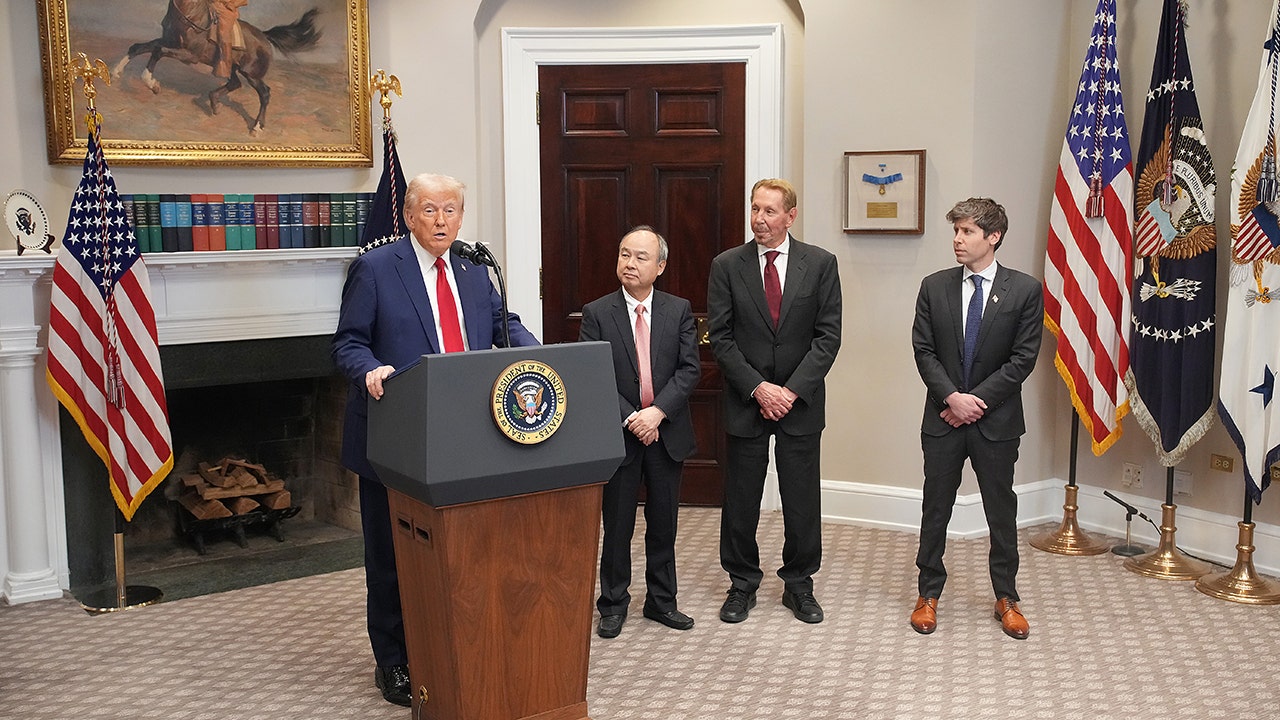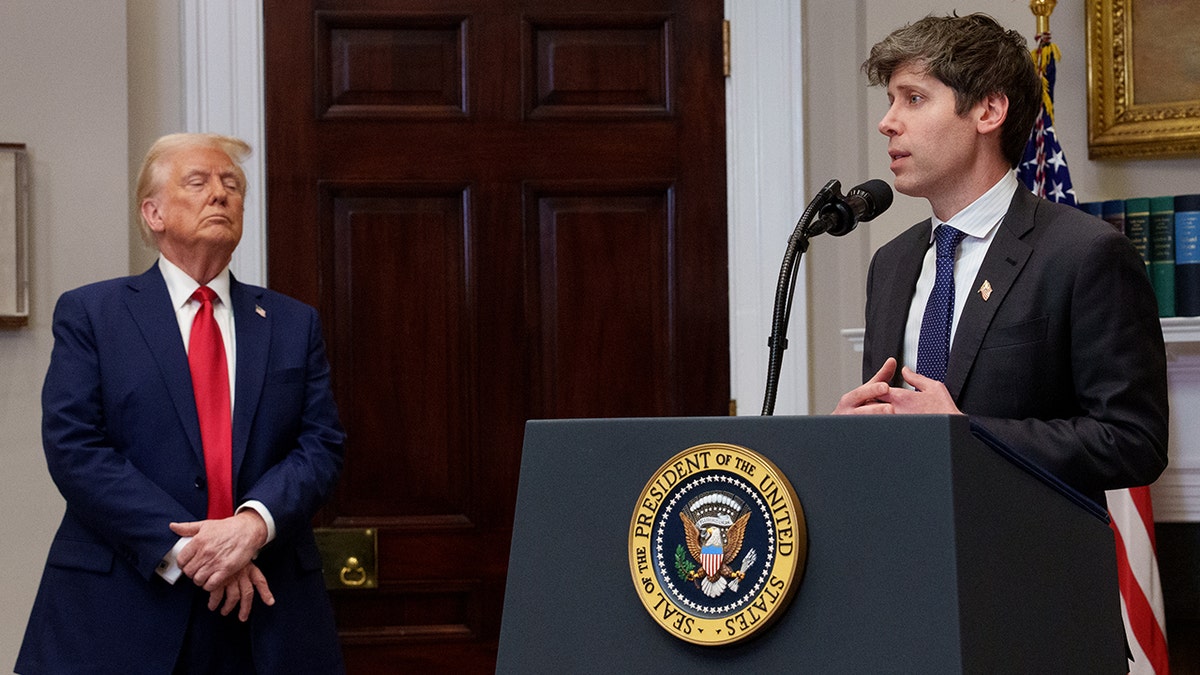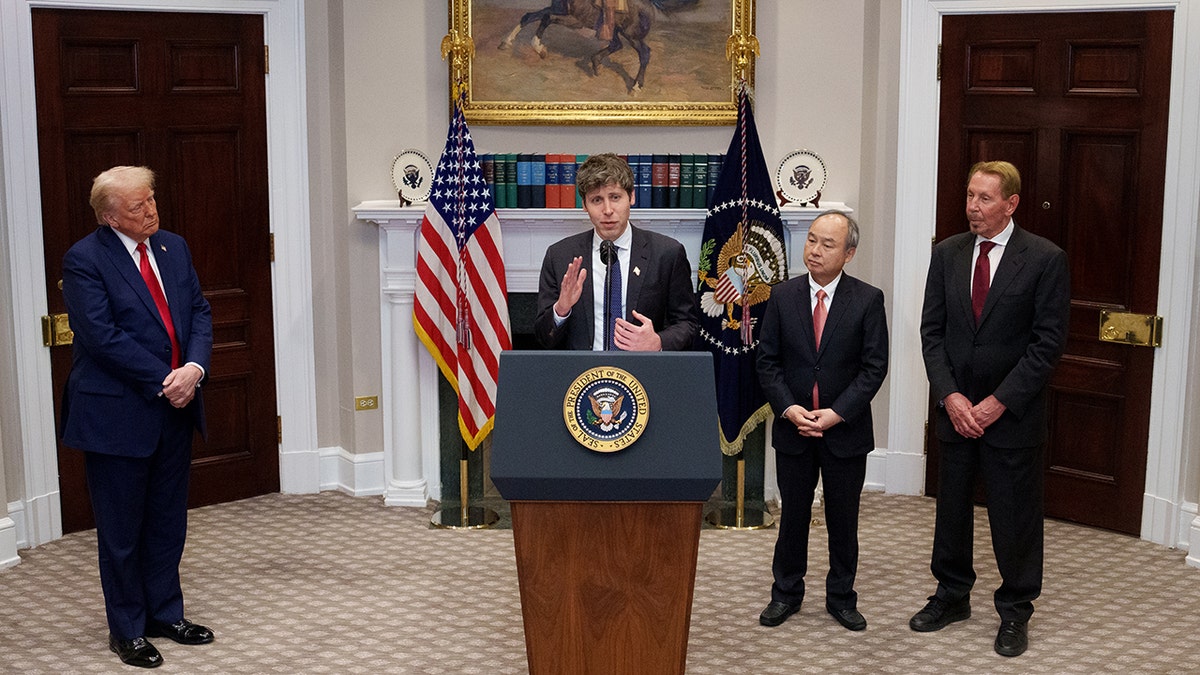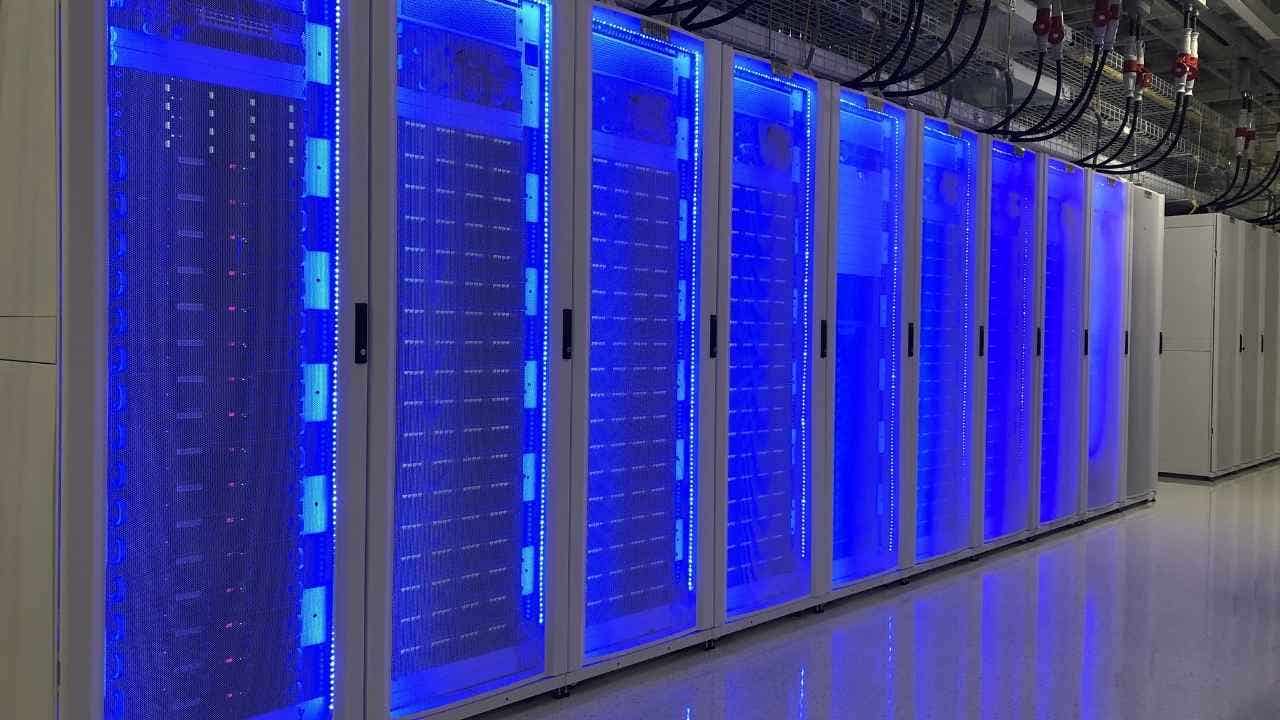Texas GOP could stall Trump’s bold AI vision with red tape as China races ahead: 'Investors are nervous'

President Donald Trump’s high-tech moonshot may hit a Texas-sized speed bump — and it’s coming from his own party.
Trump’s AI initiative, dubbed “Stargate,” aims to build 20 ultra-powerful data centers across the country. Backed by heavyweights like OpenAI, Oracle, SoftBank, and the UAE-funded MGX, the project represents a $500 billion bet on the future with Texas chosen as ground zero for the first 10 centers.
But a new Texas bill, Senate Bill 6, could delay or derail that momentum.
The legislation adds a six-month regulatory review on top of an existing 6–18-month timeline, while also requiring new fees and mandatory backup generators, doubling approval time and inflating costs.
EXCLUSIVE: WHITE HOUSE ROLLS OUT IMPLEMENTATION OF AI FOR FEDERAL EMPLOYEE RECORDS
And while the legislation is pitched as a safeguard against another Winter Storm Uri-style blackout, Trump allies warn it could torpedo a generational opportunity.
“This bill would be a serious roadblock to the president’s vision,” said Vance Ginn, president of Ginn Economic Consulting and former chief economist at the White House Office of Management and Budget during Trump’s first term, in an exclusive interview with Fox News Digital.
“It’s a misguided effort that’s rooted in fear: fear of energy scarcity, fear of AI, fear of the future.”
According to Ginn, the bill’s hefty requirements, including a $100,000 grid connection fee and a so-called “kill switch” that would let the Electric Reliability Council of Texas cut power to data centers, could end up pushing these billion-dollar projects out of Texas entirely.
“These companies aren’t just using energy,” Ginn said. “Many of them actually put excess electricity back onto the grid. So instead of hurting Texas, they help stabilize it.”
Stargate has already broken ground in Abilene, but the next 10 data centers are still up in the air. If Texas becomes too costly or complicated, experts warn the back half of the project might never happen — even as rival states like Wyoming and Tennessee court businesses without Texas’s infrastructure.
WHITE HOUSE SCIENCE AND TECHNOLOGY CHIEF WARNS CHINA IS ‘CATCHING UP’ IN AI RACE
“The Texas legislature should be working in lockstep with President Trump to build out AI infrastructure, not throwing up barriers,” Ginn added. “The AI revolution is here. If Texas fumbles this, it will fall behind.”
The bill’s sponsor, Texas Lieutenant Governor Dan Patrick, insists the legislation won’t hurt Trump’s agenda. “Senate Bill 6 actually ensures President Trump’s Stargate Plan is a success,” Patrick said in a statement. “We are in lockstep with the president on his goal to make America number one, and dominate China on AI, data centers, and cryptocurrency.”

Even with a Trump endorsement for Patrick’s re-election, Trump-aligned economists say the state is playing a dangerous game.
“We’re already seeing signs of this,” Ginn warned. “Microsoft has pulled back on projects. Investors are nervous. And meanwhile, China’s forging ahead.”
A Chinese startup called DeepSeek has made headlines for rolling out cutting-edge AI models in record time, triggering fresh anxiety about America’s standing in the global AI arms race.

“This isn’t just about innovation,” Ginn said. “This is national security. If we’re six months behind China, we may never catch up.”
Trump has backed up his AI push with hard policy, including a 10% blanket tariff on all imports and a steep 125% tariff on Chinese goods, announced just last week. But those tariffs could also raise the price of key data center components, from steel to electrical transformers.
Despite the tradeoffs, the Trump administration sees Stargate as a cornerstone of 21st-century American leadership in everything from education to healthcare.
“Texas should be leading,” Ginn said. “We can’t let fear of the unknown hold us back.”







